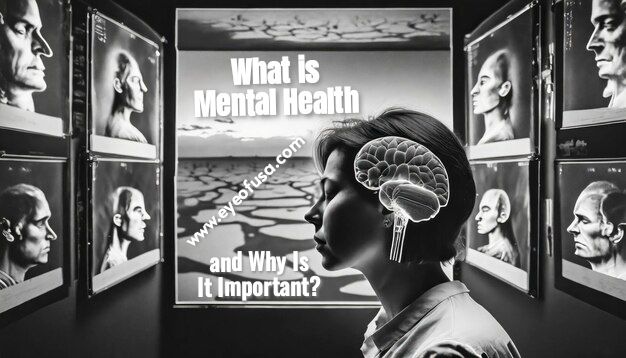Wellness Programs for Mental Health: Your Questions Answered
Introduction
In today’s fast-paced world, mental health is more important than ever. Wellness programs tailored to improve mental well-being can play a significant role in enhancing emotional resilience. But what exactly are these programs, and how can they benefit you? Let’s explore.
What Is Mental Health, and Why Is It Important?
Q: What does mental health mean?
A: Mental health encompasses our emotional, psychological, and social well-being. It affects how we think, feel, and act, influencing how we handle stress and relate to others.
Q: Why is mental health significant?
A: Mental health is crucial because it affects every aspect of our lives. Good mental health promotes overall well-being, enabling us to cope with challenges, work productively, and maintain healthy relationships.
What Are Wellness Programs?
Q: What are wellness programs?
A: Wellness programs are structured initiatives designed to promote health and well-being among participants. They often include physical activities, mental health resources, and educational workshops.
Q: What types of wellness programs exist?
A: There are various wellness programs, including those offered in corporate environments, community organizations, and online platforms. Each program may focus on different aspects of health, particularly mental well-being.
How Do Wellness Programs Benefit Mental Health?
Q: What are the benefits of wellness programs for mental health?
A: Wellness programs provide numerous benefits, including:
Improved emotional well-being: Participants often report feeling happier and more satisfied with life.
Reduced stress and anxiety levels: Programs teach stress management techniques that can lower anxiety.
Enhanced resilience: Individuals learn coping strategies that help them navigate life’s challenges.
Increased productivity: A positive mental state can lead to higher efficiency at work and in daily activities.
What Are the Key Components of Effective Wellness Programs?
Q: What makes a wellness program effective for mental health?
A: Effective wellness programs typically include:
- Mental Health Education
Q: Why is mental health education important?
A: Educating participants about mental health helps to break down stigma and empowers individuals with knowledge about their mental well-being. Workshops and resources play a key role in this. - Stress Management Techniques
Q: What stress management techniques are often taught?
A: Programs often include mindfulness practices, meditation, and relaxation exercises that can significantly reduce stress levels. - Physical Activity
Q: How does physical activity relate to mental health?
A: Regular exercise is proven to improve mood and decrease anxiety. Wellness programs often incorporate various forms of physical activity to promote overall health. - Social Support Networks
Q: Why are social support networks essential?
A: Engaging in group activities fosters a sense of community and support. Sharing experiences with others can enhance emotional well-being.
How Can One Implement a Wellness Program for Mental Health?
Q: How do organizations or communities create wellness programs?
A: To create effective wellness programs, organizations should:
- Assess the needs of their members.
- Develop a structured program that includes educational, physical, and social components.
- Gather feedback for continuous improvement.
Q: What if I want to start a wellness program for myself?
A: Individuals can seek out local resources or online programs. Look for community centers or organizations that offer mental health support and activities.
Are There Any Success Stories?
Q: Can you provide examples of successful wellness programs?
A: Many organizations have implemented wellness programs with remarkable results. For instance, a corporate wellness initiative that focused on mental health education and physical activity saw a significant decrease in employee stress levels and an increase in job satisfaction.
What Challenges Might Arise?
Q: What challenges do wellness programs face?
A: Common challenges include lack of participation, funding issues, and addressing the diverse needs of participants. However, with clear communication and adaptability, these challenges can be overcome.
Conclusion
Q: Why should I consider a wellness program for my mental health?
A: Prioritizing mental health through wellness programs can lead to improved emotional resilience and overall life satisfaction. Whether you’re part of an organization or exploring personal initiatives, there’s a program out there for you.
FAQs
Q: What are some examples of wellness programs?
A: Examples include workplace wellness initiatives, community health workshops, online courses, and mental health support groups.
Q: How can I find a wellness program in my area?
A: Check local community centers, health departments, or online resources dedicated to mental health and wellness.
Q: Can wellness programs replace professional therapy?
A: While wellness programs can offer valuable support, they should not replace professional therapy when needed. They can complement traditional mental health services.
Q: What are the costs associated with wellness programs?
A: Costs vary widely depending on the program. Some community programs may be free, while corporate programs may be covered by employers. Always check for any associated fees before enrolling.


